| Conferences > Stem Cells for Drug Discovery & Toxicity Screening 2017 > Keynote Speakers |
| Register | Login |
Tommy AnderssonDrug Metabolism and Pharmacokinetics, Cardiovascular and Metabolic Diseases, AstraZeneca, Gothenburg Tommy B. Andersson is a Senior Principal Scientist at Cardiovascular and Metabolic Disease, DMPK, AstraZeneca R&D Gothenburg. He is also a visiting professor at the Karolinska institute, department of Physiology and Pharmacology, section of pharmacogenetics. He has over 20 years scientific, management and project experience within the pharmaceutical industry and academia covering drug metabolism, dispositon and pharmacokinetics in projects from early drug discovery to life cycle management. Recently attanetion has been paid to stem cell technology and organotypic microphysiological systems and its applications in drug discovery. He is the author of 158 peer reviewed scientific publications. |
Ksenia BlinovaSenior Technical Manager, Induced Pluripotent Stem Cell and Electrophysiology Core Facility, Center for Devices and Radiological Health (CDRH), US Food and Drug Administration (FDA) Dr. Blinova leads an Induced Pluripotent Stem Cell and Electrophysiology Core Facility at FDA. It was established to foster collaborative regulatory research supporting review and assessment of FDA-regulated products based on human induced-pluripotent stem cells, including lab-developed in vitro diagnostic tests, stem cell based combination products, high-throughput cardiotoxicity and neurotoxocity screening of new drugs, and patient-specific precision medicine. Dr. Blinova received her Ph.D. in physics and mathematics from Moscow State University and completed a postdoctoral fellowship at the National Heart, Lung, and Blood Institute and FDA Commissioner’s Fellowship Program at the FDA. |
Gary GintantSenior Research Fellow, Abbvie.png) Dr. Gary Gintant is Senior Research Fellow in the Dept. of Integrative Pharmacology, Integrated Science and Technology, at AbbVie. He is involved in multiple internal drug discovery and safety initiatives internally; external activities include various cardiac safety initiatives (such as ILSI/HESI Proarrhythmia Models Project, the Cardiac Safety Research Consortium, and the Comprehensive in Vitro Proarrhythmia Assay Initiative) while serving on various journal editorial boards, NIH study sections, and Safety Pharmacology Society committees. Research interests include cardiovascular pharmacology, cellular electrophysiology/ion channels, arrhythmias, application of stem-cell derived cells and tissues to drug discovery efforts, and translational medicine. He gained his MA, M.Phil. and PhD degrees from the College of Physicians and Surgeons of Columbia University. |
Linda GriffithProfessor, Massachusetts Institute of Technology (MIT) Linda G. Griffith, PhD, is the School of Engineering Teaching Innovation Professor of Biological and Mechanical Engineering and MacVicar Fellow at MIT, where she directs the Center for Gynepathology Research and the Human Physiome on a Chip Project supported by the DARPA/NIH-funded Microphysiological Systems Program. Dr. Griffith received a Bachelor's Degree from Georgia Tech and a PhD degree from the University of California at Berkeley, both in chemical engineering. Dr. Griffith’s research is in the field of regenerative medicine and tissue engineering. Her laboratory, in collaboration with J. Upton and C. Vacanti, was the first to combine a degradable scaffold with donor cells to create tissue-engineered cartilage in the shape of a human ear. The 3D Printing Process she co-invented for creation of complex scaffolds has been commercialized for manufacture of FDA-approved scaffolds for bone regeneration. She is also a pioneer in devising ways to control nano-scale stimulation of cells by molecular cues, and in creation of 3D tissue models for drug development. The 3D perfused “LiverChip” liver tissue culture technology has been commercialized for applications in drug development. A current focus is integration of tissue engineering with systems biology, with an emphasis on endometriosis and other women’s reproductive diseases. She is a member of the National Academy of Engineering and the recipient of a MacArthur Foundation Fellowship, the Popular Science Brilliant 10 Award, NSF Presidential Young Investigator Award, the MIT Class of 1960 Teaching Innovation Award, Radcliffe Fellow and several awards from professional societies. She has served as a member of the Advisory Councils for the National Institute for Dental and Craniofacial Research and the National Institute of Arthritis, Musculoskeletal and Skin Diseases at NIH. As chair of the Undergraduate Curriculum Committee for Biological Engineering at MIT, she led development of the new Biological Engineering SB degree program, which was approved in 2005 as MIT’s first new undergraduate major in 39 years. |
Roger KammCecil and Ida Green Distinguished Professor of Biological and Mechanical Engineering, Massachusetts Institute of Technology (MIT)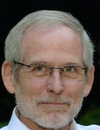 Kamm is currently the Cecil and Ida Green Distinguished Professor of Biological and Mechanical Engineering at MIT, where he has served on the faculty since 1978. Kamm has long been instrumental in developing research activities at the interface of biology and mechanics, formerly in cell and molecular mechanics, and now in engineered living systems. Current interests are in developing models of healthy and diseased organ function using microfluidic technologies, with a focus on vascularization. Kamm has fostered biomechanics as Chair of the US National Committee on Biomechanics (2006-2009) and of the World Council on Biomechanics (2006-2010). Kamm currently directs the NSF Science and Technology Center on Emergent Behaviors of Integrated Cellular Systems. He is the 2010 recipient of the ASME Lissner Medal (American Society of Mechanical Engineering) and the 2015 recipient of the Huiskes Medal (European Society of Biomechanics), both for lifetime achievements, and is the inaugural recipient of the ASME Nerem Medal for mentoring and education. He was elected to the National Academy of Medicine in 2010. Kamm is co-founder of two companies, Cardiovascular Technologies and AIM Biotech, a manufacturer of microfluidic systems for 3D culture. |
Katia KaralisExecutive Vice President of Research, Emulate, Inc.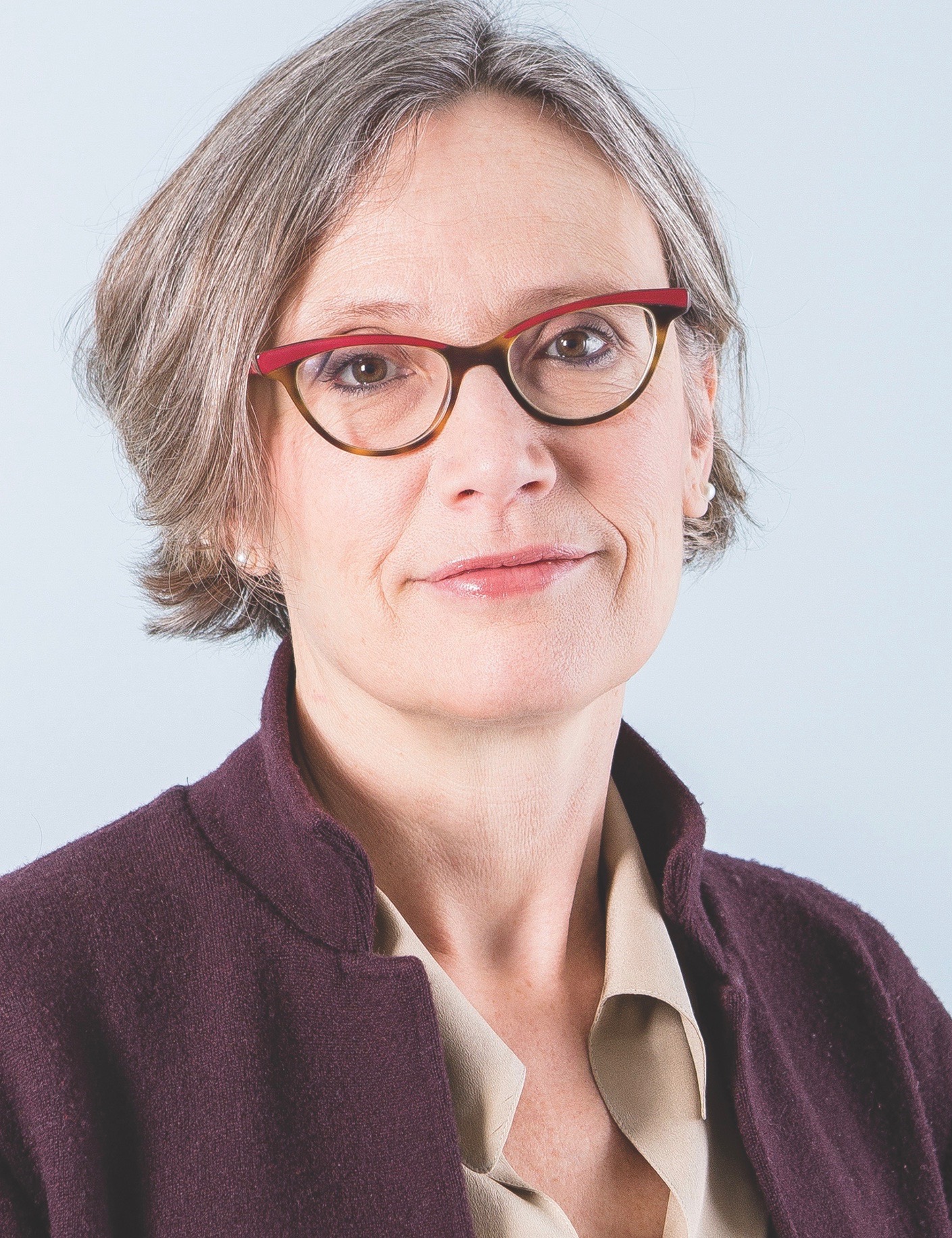 Dr. Katia Karalis is the Vice President of Research at Emulate, Inc. Based on their Organs-on-Chips technology platform, the company is developing a new living human system that combines cell biology within micro-engineered environments - for researchers to accurately understand how different diseases, medicines, chemicals and foods will affect human health. Karalis’ career spans continents, academics and industry. Prior to joining Emulate she was an Assistant Professor of Pediatrics at Harvard Medical School as well as a Visiting Scholar at the Wyss Institute for Biologically Inspired Engineering at Harvard University. She is affiliated with the Division of Endocrinology of Children's Hospital, Harvard Medical School, and TU Dresden, Medical School, in Germany. As well she is a part of the Biomedical Research Foundation of the Academy of Athens, Greece. After her academic career training in basic Endocrinology at Cedars Sinai-UCLA and the NIH, she studied Clinical Molecular Genetics at Harvard Medical School. She joined the faculty of the Department of Medicine, Children’s Hospital Boston at Harvard Medical School. Karalis was recruited to set up the Developmental Biology Section of the Biomedical Research Foundation of the Academy of Athens (BRFAA). Karalis’ 30 years of faculty appointments, membership in medical societies and grant review activities has been at the cutting edge of Human Genetic Research, endocrine, liver and gastrointestinal studies. Her numerous honors and prizes include the Fogarty Fellowship (US Government), Fellow, Institute for Advancement of Sciences, Warwick University, UK and Honorary Affiliate TUM Dresden, FDR. Karalis received both her MD and PhD from University of Athens, Greece. Her Post-Doctoral training was in Endocrinology at NIH, Bethesda, MD and Children’s Hospital, Boston. As well her Clinical Molecular Genetics post-doctoral training was in the Harvard Medical School Genetics Training Program with her Clinical Cytogenetics Training at Brigham and Women’s Hospital, Boston. She has authored over 50 papers in peer-reviewed publications. |
Norio NakatsujiChief Advisor, Stem Cell & Device Laboratory, Inc. (SCAD); Professor Emeritus, Kyoto University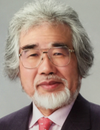 Prof. Norio Nakatsuji is Professor Emeritus of Kyoto University and Founding Director of its Institute for Integrated Cell-Material Sciences. He is also Chief Advisor of Stem Cell & Device Laboratory, Inc. and CEO of Kyoto Stem Cell Innovation, Inc. |
Michael ShulerSamuel B. Eckert Professor of Engineering, Cornell University, President Hesperos, Inc.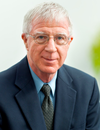 Michael L. Shuler is the Eckert Professor of Engineering, Emeritus in the Meing Department of Biomedical Engineering and in the Smith School of Chemical and Biomolecular Engineering at Cornell University, and was director of Cornell’s Nanobiotechnology Center. Shuler has degrees in chemical engineering (BS, Notre Dame, 1969 and Ph.D., Minnesota, 1973) and has been a faculty member at Cornell University since 1974. Shuler’s research includes development of “Body-on-a-Chip” for testing pharmaceuticals for toxicity and efficacy, creation of production systems for useful compounds, such as paclitaxel from plant cell cultures, and construction of whole cell models relating genome to physiology. Shuler is CEO and President of Hesperos, a company founded to implement the “Body-on-a-Chip” system. Shuler and F. Kangi have authored a popular textbook, “Bioprocess Engineering; Basic Concepts” now in its third edition. He has an honorary doctorate from the University of Notre Dame. Shuler has been elected to the National Academy of Engineering and the American Academy of Arts and Science and is a fellow of numerous professional societies. |
Devyn SmithChief Operating Officer, Sigilon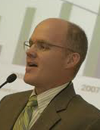 Devyn joined Pfizer's Medicinal Sciences Division of R&D as Head of Business Operations & Strategy in April, 2016. The focus of this role is both day to day business operations of the division, as well insuring implementable strategies are developed. Medicinal Sciences encompasses the groups focused on discovery, formulation, and early manufacturing of the large molecule, small molecule, cell and gene therapy programs in Pfizer R&D. Prior to this Devyn was Head of Strategy for the Pharmatherapeutics Division of Pfizer R&D focused on developing and implementing core strategies in Winning by Design in Small Molecules as well as optimizing the ROI on novel technology inventions. Prior to this, Devyn was part of Pfizer's Neusentis Research Unit in the UK as Chief Operating Officer responsible for strategy, operations and implementing key strategies. In addition, he supported the Pharmatherapeutics Global Clinical Research Organization as the Chief Operating Officer. He joined Pfizer's Strategic Management Group in August 2009. Prior to joining Pfizer, Devyn was a principal for The Frankel Group (a boutique management consulting firm in New York City and Cambridge). In his consulting experience, Devyn led a wide range of projects, across multiple therapeutic areas and a host of technology platforms, including basic R&D tools, regenerative medicine, gene therapy, and macromolecules/biologic products. Client relationships have ranged from large pharma to small biotech companies. Regenerative Medicine has been an area of strong focus with over 30 engagements, several published papers, and numerous invited conference presentations. Prior to joining The Frankel Group, Devyn worked as a management consultant at Adventis Corporation focused on clients in information intensive companies. Devyn received his Ph.D. in Genetics from Harvard Medical School where his research culminated in 12 publications in leading journals such as Cell, Nature, and Development. He also holds an MS in Biology from Idaho State University and a BS in Zoology from Brigham Young University. |
John WikswoGordon A. Cain University Professor, A.B. Learned Professor of Living State Physics; Founding Director, Vanderbilt Institute for Integrative Biosystems, Vanderbilt University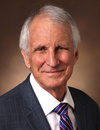 John Wikswo is the Gordon A. Cain University Professor at Vanderbilt University and is the founding Director of the Vanderbilt Institute for Integrative Biosystems Research and Education. Trained as a physicist, he received his B.A. degree from the University of Virginia, and his PhD. from Stanford University. He has been on the Vanderbilt faculty since 1977. His research has included superconducting magnetometry, the measurement and modeling of cardiac, neural and gastric electric and magnetic fields, and non-destructive testing of aging aircraft. His group’s current work on organ-on-chips focuses on the development of intelligent well plates that serve as perfusion controllers, microclinical analyzers, and microformulators; developing a blood-brain-barrier and a cardiac tissue construct on a chip; and integrating multiple organs to create a milli-homunculus from coupled organs on chips. As a tenured member of the Departments of Biomedical Engineering, Molecular Physiology & Biophysics, and Physics & Astronomy, he is guiding the development of microfabricated devices, optical instruments, and software for studying how living cells interact with each other and their environment and respond to drugs, chemical/biological agents, and other toxins, thereby providing insights into systems biology, physiology, medicine, and toxicology. He has over 250 publications, is a fellow of seven professional societies, and has received 39 patents. |




